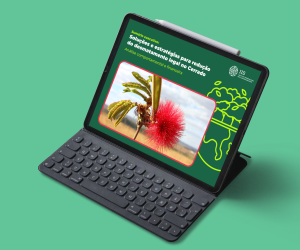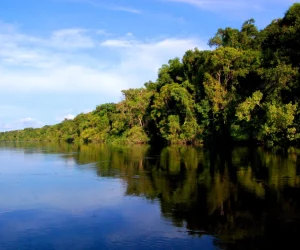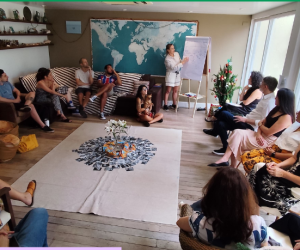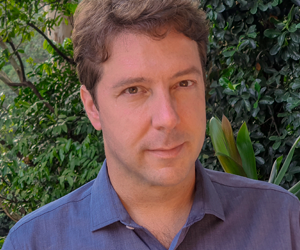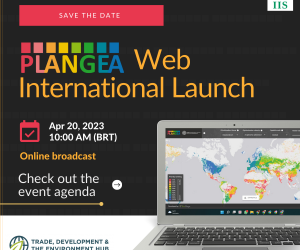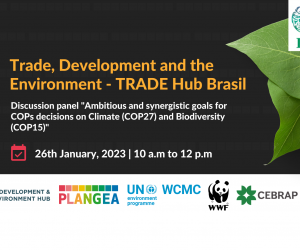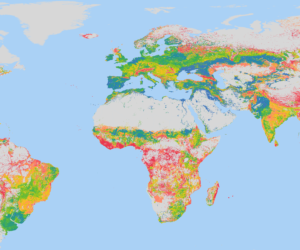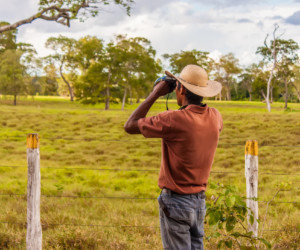News > Release
13.03.23
IIS launches online platform with priority areas for ecosystems conservation and restoration around the world
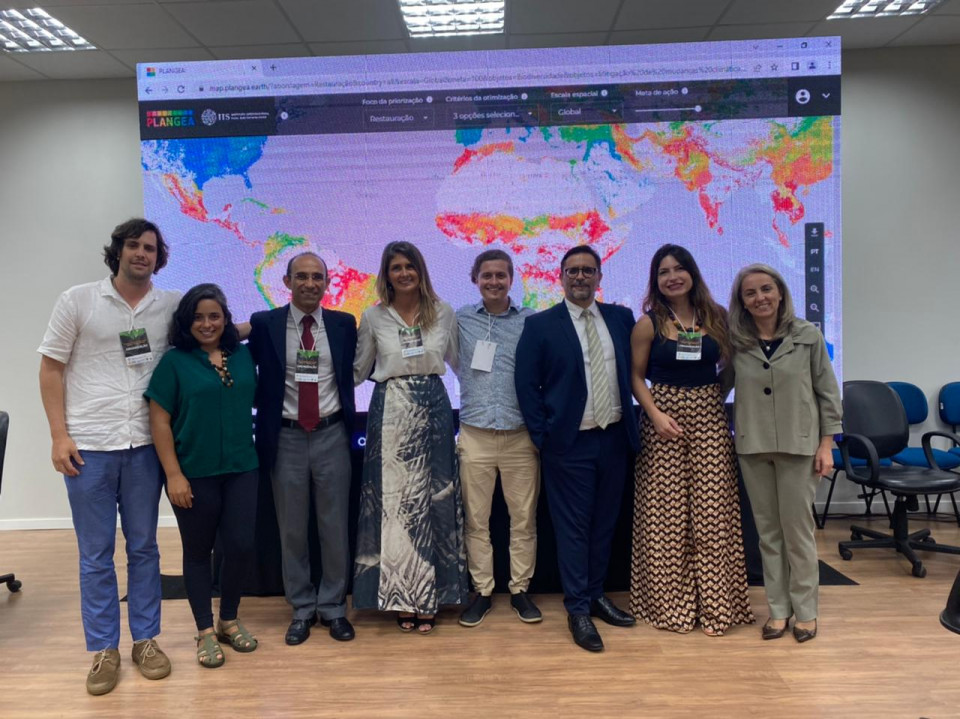
Rio de Janeiro, March 13, 2023. International Institute for Sustainability (IIS), a Brazilian think-and-do-tank focused on understanding the relationship between human society and the environment, recently launched the online interactive platform PLANGEA Web (plangea.earth), designed to facilitate and support strategic land use planning. The platform presentation was during the event “Trade, Development and Environment”, held at the Food and Agriculture Organization (FAO) of the United Nations (UN) headquarters in Brasília, at the end of January.
On the PLANGEA Web interactive map, users can choose from customisable criteria to simulate the prioritisation of areas for conservation or restoration on a global or national scale, based on optimising biodiversity conservation, climate change mitigation, and cost minimization. In addition to the prioritisation map, the platform also presents individual quantification for the multiple benefits considered. The results are presented in maps, graphs, tables, images, and full reports, for visualisation and download (including raw data).
These simulations result from the continuous development of an integer linear programming modelling, also called PLANGEA, created to quantify the environmental and economic benefits of land use change, revealing important synergies and trade-offs when incorporating multicriteria optimization in spatial planning. The platform also brings information about projects and publications developed with the modelling, providing access to the main products of these researches.
For Neil Burgess, Head of the Science Programme of the UN Environment Programme World Conservation Monitoring Centre (UNEP-WCMC), the tool “can help develop national strategies to implement the new Kunming-Montreal Global Biodiversity Framework adopted at COP-15”.
Paulo Branco, IIS deputy director, points out that the platform “will expand the people and institutions capacity to assess priority areas for ecosystems restoration and conservation on a global or national scale, allowing for more accurate and sustainable long-term decisions, fundamental aspects to face the challenges of the climate and biodiversity crises”.
The launch event also featured a panel discussion on the COP-27 and COP-15 outcomes, which presented different approaches to tackle two major global challenges: climate change and biodiversity loss. For Rafael Loyola, IIS executive director, “both the strategic planning of conservation and restoration actions and a roadmap for fair and sustainable trade will be essential to combat the global climate and biodiversity crises”. The recording is available on the Institute’s YouTube channel.
Led by IIS, the meeting was supported by UNEP-WCMC, The Brazilian Center of Analysis and Planning (Cebrap), the Forestry and Agricultural Management and Certification Institute (Imaflora), WWF-Brasil and UKRI GCRF TRADE, Development & the Environment Hub (TRADE Hub).For more information, send an email to plangea@iis-org.br.

About IIS
Founded in 2009 and headquartered in Rio de Janeiro, the International Institute for Sustainability (IIS) is a Brazilian think-and-do-tank focused on understanding the relationship between human society and the environment. The Institute’s main objective is to promote sustainable land use, in particular biodiversity conservation, ecosystem service provisioning, sustainable soil management, climate change mitigation and adaptation, and the socioeconomic development of actors involved in these processes.
From its studies, IIS has provided scientific and technical support to the United Nations Convention on Biological Diversity (CBD) and the United Nations Framework Convention on Climate Change (UNFCCC), to national and local governments as well as to the private sector, in processes involving different actors. Over the past 14 years, we delivered over 25 projects financed by organizations such as the Global Environmental Facility (GEF), the Norwegian Agency for Development Cooperation (NORAD); the Gordon & Betty Moore Foundation; the German Federal Ministry for the Environment, Nature Conservation and Nuclear Safety (BMU); the UK’s Global Challenges Research Fund (GCRF); the World Wide Fund for Nature (WWF); the Government of the State of São Paulo and the Serrapilheira Institute, among many others.
Contact:
Fernanda Gomes
+55 (21) 98013 0407
Bruna Pavani
+55 (11) 97109 2552
Breno Valle
+55 (21) 97916 0111

